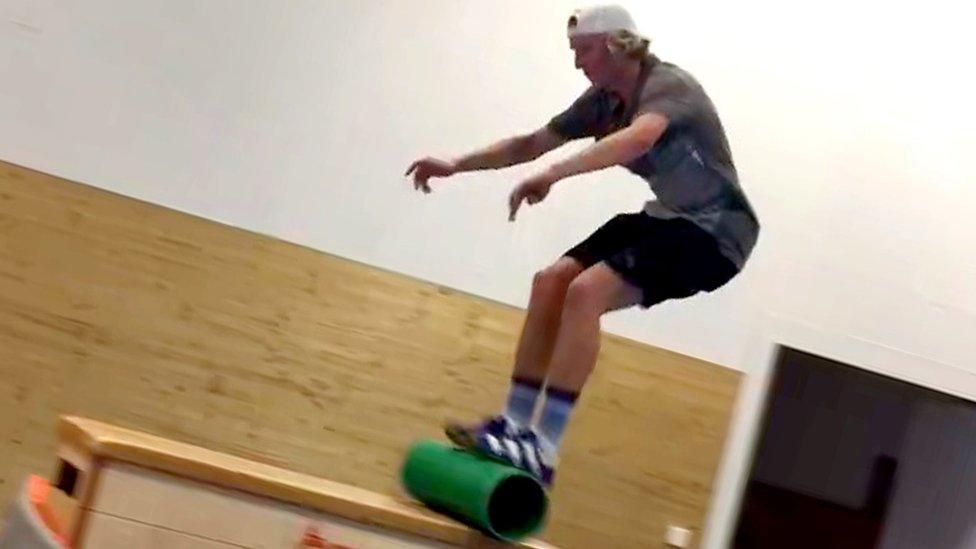United Kingdom first to recognise parkour as official sport
- Published
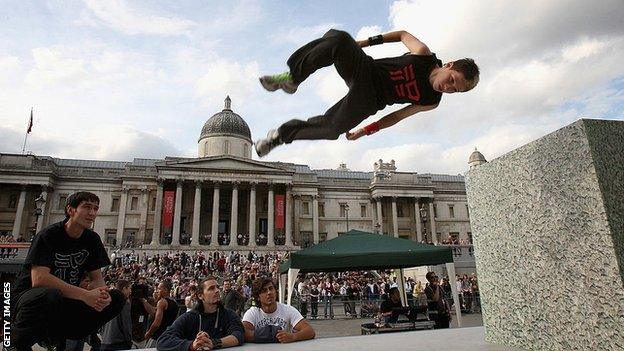
Parkour, or freerunning, was developed in France in the 1980s
The United Kingdom has become the first country to officially recognise parkour as a sport.
The practice, also known as freerunning, has had its application to be recognised approved by the home country sports councils.
Governing body Parkour UK says participants can "take part whenever and wherever they want".
Minister for Sport Tracey Crouch described it as a "fun, creative and innovative option".
"I want people to get out there and find the sport and physical activity that appeals to them," she added.
"I am pleased that it has been recognised as a sport, giving it the platform for further growth in this country.
"The sport promotes movement and using the great outdoors as a space to get active in and I encourage people to don their trainers and give it a go."
What is Parkour?
Eight years after starting discovering it, Alex Pownall says having made a career out of freerunning is "a dream come true"
According to Parkour UK,, external the discipline was founded in France in the 1980s by a group of nine men and named l'art du deplacement.
The governing body describes it as a physical discipline in which participants "move freely over and through any terrain using only the abilities of the body".
Parkour UK says it "encourages self-improvement on all levels, revealing one's physical and mental limits while simultaneously offering ways to overcome them".
The term "freerunning" was introduced to communicate the sport to an English-speaking audience.
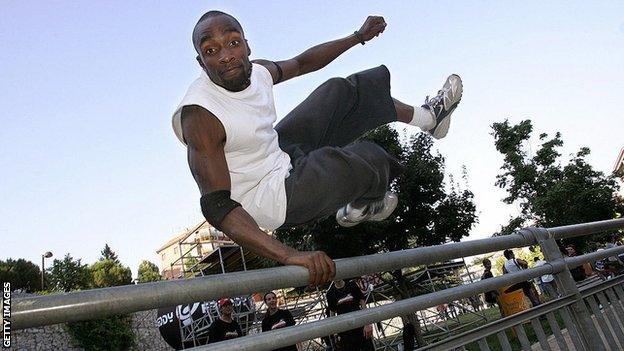
Sebastien Foucan has his own freerunning academy in London
Sebastien Foucan, president of Parkour UK, is most recognisable from his role as Mollaka in the opening scene of James Bond's Casino Royale, where he is chased through a building site by Daniel Craig.
Foucan, who has also appeared music videos for Madonna and stared on Channel 4 documentary Jump London, called the decision, external a "groundbreaking moment for a discipline which started off as child's play and continues as child's play - for all ages".
"We celebrate activity and playfulness whilst constantly challenging our mental and physical limits. It is more than just jumping, it is a health driven way of life," he added.
Parkour UK chief executive Eugene Minogue said the sport is now in a vast majority of primary and secondary schools, colleges and universities, with the UK also boasting 50 Parkour Parks.
He added: "All this in just over seven years , an amazing achievement and testament to the unique and diverse parkour/freerunning community in the UK, which is world leading."
However, parkour has faced some criticism, external for "potentially jeopardising lives" and encouraging "trespassing".
The UK's freerunning community said it was left "scarred" after the death of prominent freerunner Nye Newman on New Year's Day.
The 17-year-old's parkour group, Brewman, says he died in an accident on the Paris Metro, but denied he was train surfing at the time.
How does a sport become recognised?
The Council of Europe defines 'sport' as any form of physical activity, casual or organised, aimed at "expressing or improving physical fitness and mental well-being, forming social relationships or obtaining results in competition at all levels".
Sport England, UK Sport, Sport Northern Ireland, Sport Scotland and Sport Wales refer to this charter when they determine what they officially recognise as a sport.
The national governing body of any activity wishing to become an official sport must apply to the home country sports councils.
Sport England says:, external "Sports council recognition of a national governing body is not a guarantee of funding and neither does it mean we have approved or accredited the quality of its programmes."
- Attribution
- Published25 October 2014
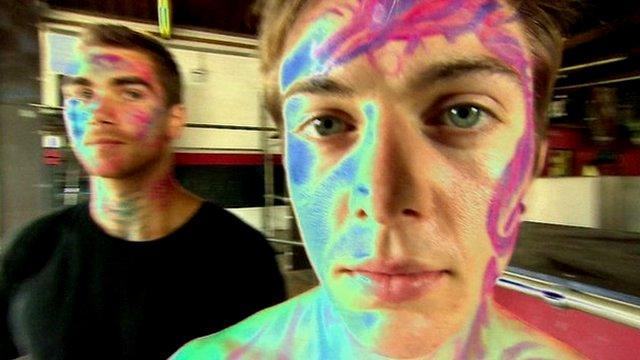
- Attribution
- Published30 April 2015
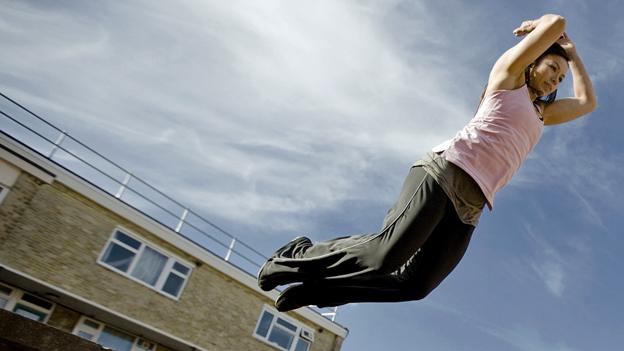
- Attribution
- Published7 October 2016
